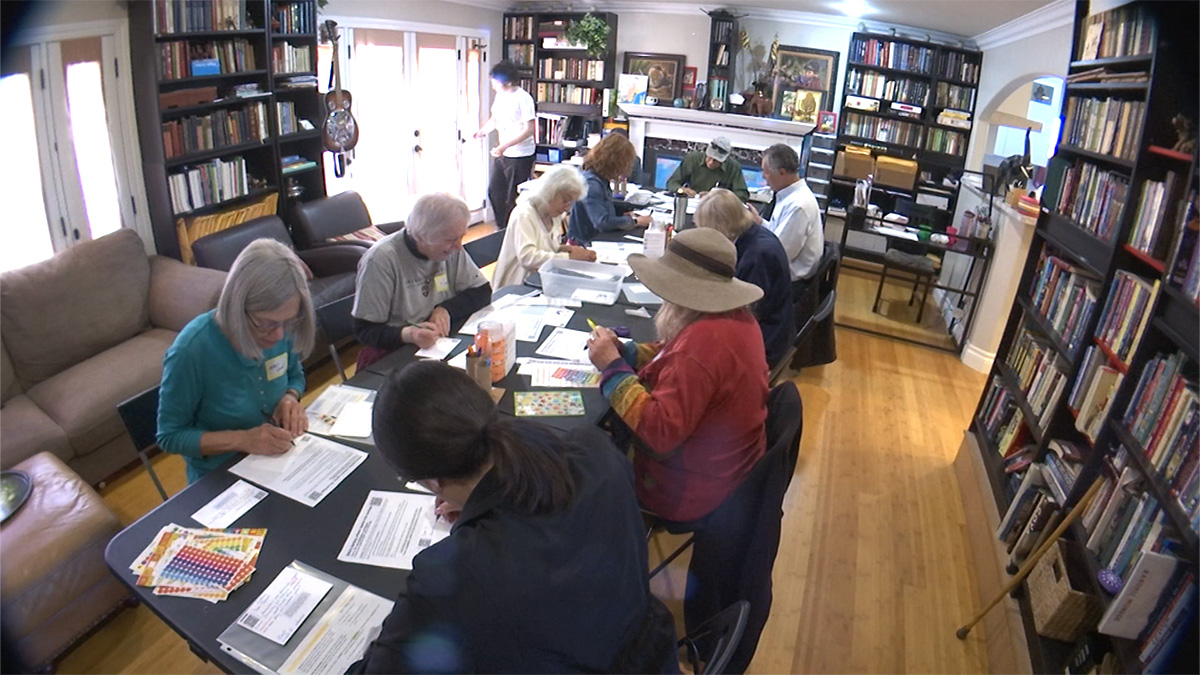California Lt. Gov. Gavin Newsom spoke at San Jose State University on Wednesday detailing an expansion to online engineering courses offered to students at SJSU and other California State University campuses.
The partnership is between SJSU and a Boston-based nonprofit and will offer an online engineering course in circuits and electronics to 11 CSU campuses. In addition, SJSU will open a Center for Excellence in Adaptive and Blended Learning to train faculty members from other campuses interesting in offerse these kinds of clases.
Newsom warmed up the crowd by talking about his 3-year-old daughter and her aptitude for the iPad, using that as an example for how young people learn these days: with technology.
"We need to learn to compete with limited resources," Newsom said. "We have to provide more access."
As the second in command in California, Gavin is on the CSU and University of California boards, and is interested in finding ways to make college affordable and accessible to as many young people as possible, according to SJSU spokeswoman Pat Harris.
His joint announcement detailed a relationship with edX, a nonprofit founded by Harvard University and the Massachussetts Institute of Technology that features learning designed specifically for interactive study on the web.
The pilot project began last fall at SJSU with 80 students, said edX spokeswoman Emily Stephens. Students used online materials, lectures and quizzes outside of class; while during class, the professor spent time helping students with problem solving and discussion.
"This was a tremendous success," she said.
Local
SJSU student Sara Compton agreed. She said she liked online classes better because she usually misses things in a traditional class. But when your professor is on a video, she said, you can stop, pause and replay.
With the expanded program that will begin this fall, faculty members from other CSU campuses will be equipped to incorporate the "MITx 6.002x Circuits and Electronics" course into their own blended classroom settings.
Stephens said that this means students from participating CSU campuses will have access to the readings, video and interactive exercises wherever they study, and then meet in class for in-depth discussions and group work facilitated by their own professors.
The agreement also sets the stage for the SJSU-edX collaboration to expand well beyond engineering to the sciences, humanities, business and social sciences, she added. SJSU will pilot additional courses from several edX universities including Harvard, MIT and the University of California, Berkeley.
Gavin is a big proponent of the Massive Open Online Class or MOOC movement, attending a big national conference in Los Angeles, where he and SJSU President Mohanned H. Qayoumi have been talking about SJSU ever since.
California Experiment Could Open Market for Online Courses
Like many innovations, the California experiment of MOOCS - providing affordable online classes - was born of calamity. The state's three-tiered system of universities and colleges was created to give students of all talents and means a way to earn a degree. It was a huge success, but relied on massive amounts of state funding to keep tuition low. Starting in the late 1970s, taxpayers and lawmakers began to reduce that flow of cash. Tuition and fees went up. So did student debt. Faculty were laid off, and course offerings reduced. Officials estimate that 470,000 students at California's community colleges cannot get into classes required for graduation.
The crisis coincided with the rapid growth in the number of online courses developed by private for-profit startups, many of them free.
Advocates of the California proposal say that if it succeeds, it could lead more states to try MOOCs, especially as pensions and health benefits eat up a growing amount of state money, and the Obama administration pushes for ways to make higher education more affordable.
Gov. Jerry Brown also supports the idea. In January, he spoke at SJSU, where the university announced a partnership with Udacity, a silicon Valley company that offers online courses for credit of $150 per couse.



